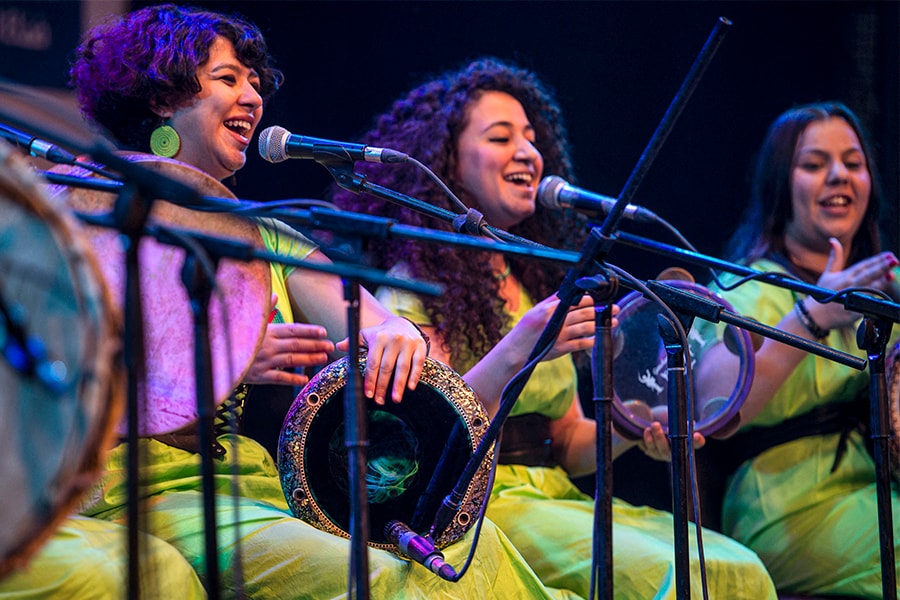
Egypt's drummers beat away bad rap of tabla tunes
Professional tabla players in the country have been associated with nightclubs, where they accompany the undulations of belly dancers, looked down on as figures of ill-repute by many Egyptians. That is something the newcomers want to change
 Women members of the "Tablet al-Sitt" (the Lady's Tabla)
Image: Mohamed Hossam
Women members of the "Tablet al-Sitt" (the Lady's Tabla)
Image: Mohamed Hossam
Many Egyptians associate the tabla drum with belly dancers and seedy nightclubs but, despite its image problem, percussionists are giving the ancient instrument a new lease of life.
And it is often women who are now playing the goblet-shaped traditional drum, an early version of which has been found in the ancient temple of the Goddess Hathor in Qena, southern Egypt.
The beat of the tabla is ubiquitous, animating every Egyptian wedding, concert and impromptu dance party.
And yet professional tabla players have been associated with nightclubs, where they accompany the undulations of belly dancers, looked down on as figures of ill-repute by many Egyptians.
"The public's image of the tabla is very negative," said music expert Ahmed al-Maghraby. "People associate it with a lack of morals."







